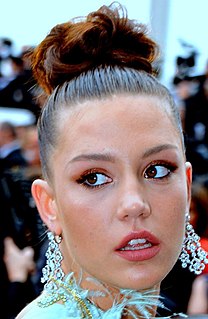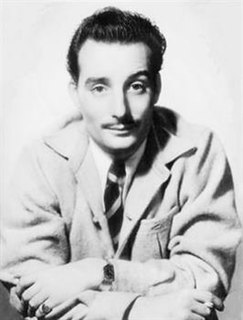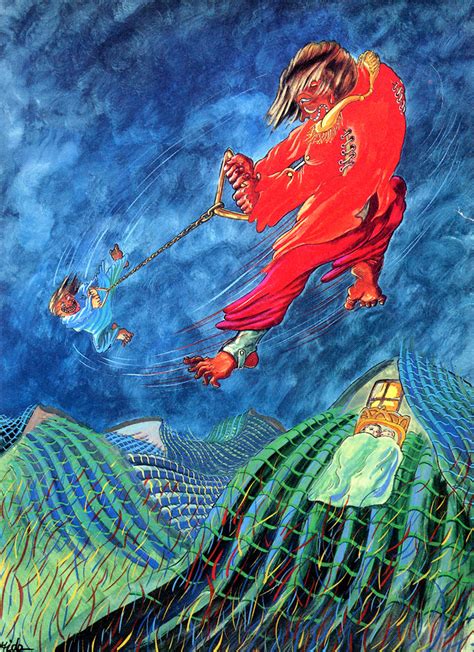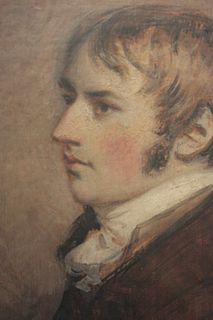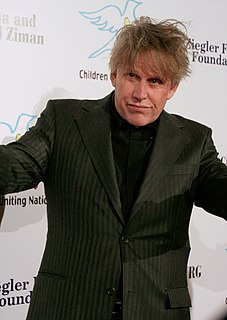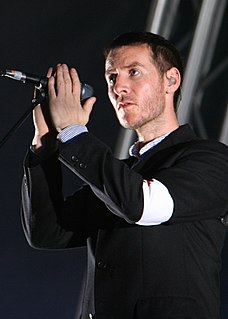A Quote by Adele Exarchopoulos
A violent scene is art, as much as a sex scene is art. For me, all the scenes were a challenge.
Related Quotes
have a much harder time writing stories than novels. I need the expansiveness of a novel and the propulsive energy it provides. When I think about scene - and when I teach scene writing - I'm thinking about questions. What questions are raised by a scene? What questions are answered? What questions persist from scene to scene to scene?
When I first started writing, there was no way I'd write a sex scene. That just seemed impossible. That's why in "Fight Club" all the sex happens off-screen. It's all just a noise on the other side of the wall or the ceiling. I just couldn't bring to write in a scene like that. So one of the challenges with "Choke" was I wanted to write sex scenes until I was really comfortable just writing them in a very mechanical way.
My canvas soothes me into forgetfulness of the scene of turmoil and folly - and worse - of the scene around me. Every gleam of sunshine is blighted to me in the art at least. Can it therefore be wondered at that I paint continual storms? "Tempest o'er tempest roll'd" - still the "darkness" is majestic.
Film and television are very different. On the TV show, we do seven or eight scenes a day, so time and money are of the essence, and we have zero room for creativity because you've got to do each scene in only five takes. Whereas, on a film, you have an entire day to film one scene, so you have so much time to choose how you want to fill in a scene.
I don't think that any scene [in Pineapple Express] is word for word how you'd find it in the script. Some of it was much more loose than others. The last scene with me, Danny [McBride] and James [Franko] in the diner - there was never even a script for that scene. Usually we write something, but for that scene we literally wrote nothing.
For me, in movies, it's always a mixed bag. I've never made a movie where I thought, "You were really good in that movie; you were good all the time." No. It's always, "You didn't get it, you didn't do it in that scene, but the other scene is pretty good." So I just hope that in balance there's more good scenes than not.
The stage is the opposite: you are talking loud so you can project to the back row and you know the whole play. In a movie, you are scene-to-scene; you only know the purpose of that scene. On the stage, that is artistic science. It is real, it is loving, it is truthfully you. It is two different formulas to make two different art pieces, but it is all about truth.
